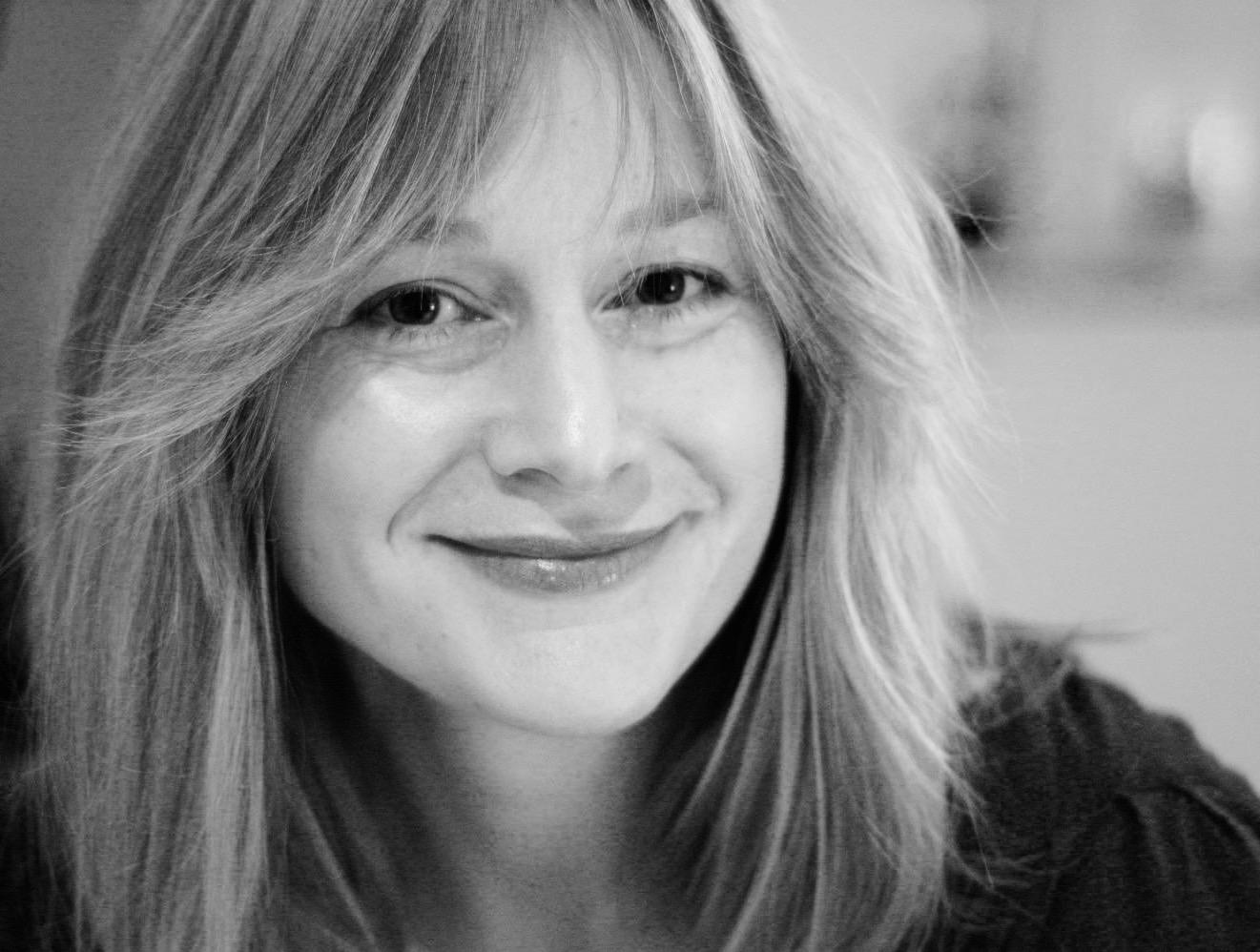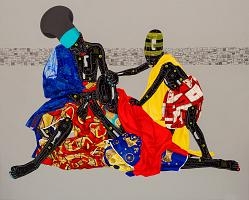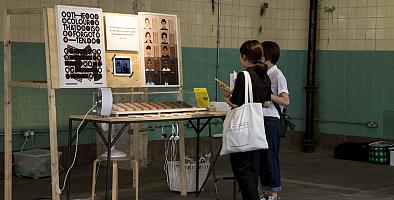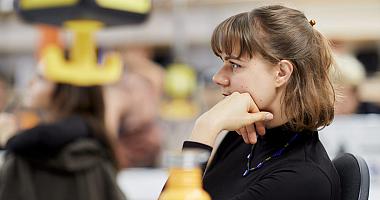MA
Brands, Communication & Culture
Content navigation menu
Why study MA Brands, Communication & Culture at Goldsmiths
This unique programme introduces the ways in which brands are developed and used, and helps you understand how the growth of branding – in business, politics, government, sport and culture – has changed the societies we live in.
- This MA is not a conventional branding or marketing degree – it offers a unique, theory-based approach to the study of brands, reflected in topics taught on our compulsory modules such as gender, colonial history and branding, social media and open source cultures, and geodemographics and new forms of social classification.
- You’ll gain a comprehensive understanding of the history and development of brands and branding, and their relationship to contemporary forms of communication and culture. You'll also ask what happens when the state uses branding techniques to communicate with its citizens.
- You’ll also gain in-depth knowledge of the social, political and economic backdrop against which branding has become so important, and an understanding of the key themes and debates surrounding its development and use, including the relationship between brands and intellectual property, and the extent to which branding promotes or inhibits openness and transparency within organisations.
- You’ll improve your ability to think critically and creatively about contemporary communications and cultural practices. When you have completed the programme you will be able to analyse contemporary communications, make judgments about their significance, and be able to thoughtfully contribute to contemporary communications.
- You’ll benefit from being taught in the and the . Our research interests are diverse, and you’ll be able to customise your degree by choosing from a range of optional modules to explore your own interests and broaden your perspectives.
- You’ll be part of a group of students who have a range of experiences and interests in communication, management, politics, design and the cultural industries.
- The Department of Media, Communications and Cultural Studies has been ranked second in the UK for 'world-leading or internationally excellent' research (Research Excellence Framework, 2021) and 16th in the world (third in the UK) in the 2024 QS World Rankings for communication and media studies.
Contact the department
If you have specific questions about the degree, contact Jamie Matthews.
Length
1 year full time or 2 years part-time
Entry requirements
You should have (or expect to be awarded) an undergraduate degree of at least 2:1 standard in a relevant/related subject. You might also be considered if you aren’t a graduate or your degree is in an unrelated field, but have you relevant experience and can show you can work at postgraduate level.
Fees
Home - full-time: £10350
Home - part-time: £5175
International - full-time: £20460
Departments
What you'll study
Compulsory modules
All students take the following two modules:
| Module title | Credits |
|---|---|
| Branding I: History, Contexts and Practice | 30 credits |
| Branding II: Key themes and debates | 30 credits |
Optional modules
In addition to the compulsory modules, you can take up to 60 credits chosen from the Department of Media, Communications and Cultural Studies (MCCS) and the Department of Sociology.
Dissertation
You will also complete a dissertation (60 credits) on the topic of your choice.
Recent dissertation topics have included:
- Branded Good? An analysis of socially conscious branding and new-imperialist narratives
- Branded Cosmopolitanism: A study of music festivals in China
- Virtual Intimacy: Fantasies of authenticity in the branding strategies of VR adult studios
- The rise of co-working spaces
- Craft entrepreneurs: an inquiry into the rise of artisanal production in post-industrial cities
- Medical tourism and branded healthcare
- Intellectual property in the fashion industry
Structure
The programme is made up of:
- Two compulsory modules (60 credits in total)
- Between two and four options modules (worth 60 credits in total)
- A dissertation (60 credits)
We offer a range of theory-based options as well as some practice-based options in areas such as media futures, online journalism, campaign skills and processes for innovation.
How you'll be assessed
Depending on the options chosen assessment consists of coursework, extended essays, presentations, practice-based projects or essays/logs, group projects and/or reflective essays.
How to apply
Apply directly to Goldsmiths using our online application system
You apply directly to Goldsmiths using our online application system.
Before submitting your application you’ll need to have:
- Details of your academic qualifications
- The email address of your referee who we can request a reference from, or alternatively a copy of your academic reference
- Copies of your educational transcripts or certificates
- A personal statement – this can either be uploaded as a Word Document or PDF, or completed online. Please see our guidance on writing a postgraduate statement
You'll be able to save your progress at any point and return to your application by logging in using your username/email and password.
When to apply
We accept applications from October for students wanting to start the following September.
We encourage you to complete your application as early as possible, even if you haven't finished your current programme of study. It's very common to be offered a place that is conditional on you achieving a particular qualification.
Late applications will only be considered if there are spaces available.
If you're applying for funding, you may be subject to an earlier application deadline.
Selection process
Admission to many programmes is by interview, unless you live outside the UK. Occasionally, we'll make candidates an offer of a place on the basis of their application and qualifications alone.
Find out more about applying.
Entry requirements
You should have (or expect to be awarded) an undergraduate degree of at least upper second class standard in a relevant/related subject.
You might also be considered for some programmes if you aren’t a graduate or your degree is in an unrelated field, but have relevant experience and can show that you have the ability to work at postgraduate level.
International qualifications
We accept a wide range of international qualifications. Find out more about the qualifications we accept from around the world.
If English isn’t your first language, you will need an IELTS score (or equivalent English language qualification) of 6.5 with a 6.5 in writing and no element lower than 6.0 to study this programme. If you need assistance with your English language, we offer a range of courses that can help prepare you for postgraduate-level study.
Fees and funding
Annual tuition fees
These are the PG fees for students starting their programme in the 2024/2025 academic year.
- Home - full-time: £10350
- Home - part-time: £5175
- International - full-time: £20460
If your fees are not listed here, please check our postgraduate fees guidance or contact the Fees Office, who can also advise you about how to pay your fees.
It’s not currently possible for international students to study part-time under a student visa. If you think you might be eligible to study part-time while being on another visa type, please contact our Admissions Team for more information.
If you are looking to pay your fees please see our guide to making a payment.
Funding opportunities
Football Writers Association (FWA) Bursary
The aim of the FWA Bursary is to encourage those students who come from backgrounds that are underrepresented in the industry.
Explore the Goldsmiths scholarships finder to find out what other funding you may be eligible for.
Paying your fees
Find out about paying your tuition fees.
If you are a UK student you may be eligible for a postgraduate loan.
Meanwhile our Careers Service can also offer advice on finding work during your studies.
Additional costs
In addition to your tuition fees, you'll be responsible for any additional costs associated with your course, such as buying stationery and paying for photocopying. You can find out more about what you need to budget for on our study costs page.
There may also be specific additional costs associated with your programme. This can include things like paying for field trips or specialist materials for your assignments. Please check the programme specification for more information.
Careers
Where this degree can take you
The programme equips you with the skills necessary to pursue a wide range of careers related to branding and communication in the media and other industries. Students are encouraged to seek work experience and work placements during the programme as time allows. The MA also allows you to pursue further academic research in one or more of the areas covered on the programme.
Skills
The programme helps students to develop a high-level understanding of contemporary branding and communications techniques and their social, economic and political contexts.
You will be encouraged to develop your critical reasoning skills and your understanding of contemporary cultural and media theory, but also to develop greater visual literacy and a capacity for creative thinking. Assessments are designed to ensure that you are able to apply these skills in practical ways.
Suggested reading
Brands and Branding
Arvidsson, A. (2006) Brands: meaning and value in media culture, London: Routledge.
Julier, G. (2008) The Culture of Design, Oxford: Berg, second edition.
Klein, N. (1999) No Logo, London: Random House
Lury, C. (2004) Brands: The logos of the global economy, London and New York: Routledge.
Moor, L. (2007) The Rise of Brands, Oxford: Berg.
Williams, R. (1960) ‘Advertising: The Magic System’, New Left Review, 1/4
Consumer culture
Lury, C. (2011) Consumer Culture, Cambridge: Polity, second edition
Molotch, H. (2003) Where Stuff Comes From, New York: Routledge
Cultural and social theory
Barthes, R (1964) Elements of Semiology, Atlantic Books
Deleuze, G (1992). ‘Postscript on the Society of Control’, The MIT Press, 59
Hillis, K., Paasonen, S and M, Petit (eds) (2015) Networked Affect, MIT Press
Marcuse, H. (1964) One Dimensional Man: Studies in the Ideology of Advanced Industrial Society, London: Routledge
Williams, R. (1958) Culture and Society. New York: Columbia University Press








